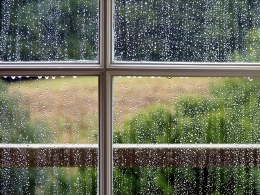29 October 2013
 Even though I finally managed to leave, I was never able to get back on track with my career or with my finances really. I lost my confidence, I still feel scared. Supporting the kids, getting housing and the legal side of it just takes all my energy.
Even though I finally managed to leave, I was never able to get back on track with my career or with my finances really. I lost my confidence, I still feel scared. Supporting the kids, getting housing and the legal side of it just takes all my energy.
I spent a few years just hiding constantly. I didn't have a car and I wouldn't walk along the main roads. I used to take all the back streets to get to the shops so I wouldn't get found. I just live in fear that he is still watching me.
I had my own house and a good job before I met my partner. But the more money I made, the more he spent. Whenever I tried to talk to him about it, he became physically violent and assaulted me badly. I fled to a shelter, but also developed chronic depression and ended up losing both my job and my home.
These vignettes are a small window into how domestic violence has the capacity to change the way its victims relate to the world.
In a major push to find out how and to what extent domestic violence impacts women’s lives and their ability to engage as citizens, the University of South Australia and the University of Western Australia are joining forces to reach out to women who have been, or still are, victims of domestic violence.
UniSA’s Dr Sarah Wendt, one of the project’s lead researchers, says domestic violence makes no discrimination according to age or social circumstance; it occurs right across the spectrum with the latest statistics showing one in three Australian women have experienced domestic violence.
“There are many types of domestic violence but the research shows that across the world 40 per cent of women report sexual or physical partner violence; in Australia we know women experience most domestic abuse from men they know and in particular their partners,” Dr Wendt says.
“What is less well researched is how domestic violence impacts on women’s everyday lives and how it can limit their opportunities and capacities to act as citizens. That is what we want to examine in a national survey.”
The UniSA, UWA study will examine three central aspects of everyday life – housing, employment and mental health.
Professor Donna Chung, UWA’s lead researcher for the project, says she hopes to discover the long-term impacts of domestic violence.
“We know how often the police are called to domestic violence situations and that refuges cannot cope with the number of women and children seeking support, but we know much less about the longer lasting impacts of domestic violence,” she says.
“The effects of violence and abuse don’t just end when people escape the relationship; we need to know about how this impacts on women’s lives later, particularly on their health and wellbeing, working and personal lives.”
Dr Wendt says that current research points to profound repercussions on women’s lives as a direct result of domestic violence.
“Domestic violence can damage women’s mental health as well as their housing and employment situations, things we all need to be able to be full members of society, but perhaps take for granted,” Dr Wendt says.
“We want to break the silence about the long-term suffering experienced by too many women and their families and to gain insight into the combined effects of domestic violence on women’s housing, employment and mental health across their life course.”
The research team is launching a national survey on Tuesday October 29. To take part, visit www.unisa.edu.au/genderandviolence.
Media Contact
Michèle Nardelli office (08) 8302 0966 mobile: 0418 823 673 email: Michele.nardelli@unisa.edu.au



